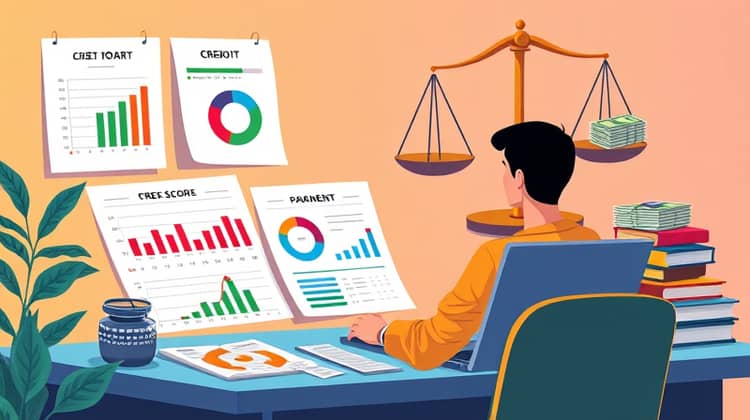Taking a personal loan can be a significant financial decision, and careful consideration is critical before proceeding. With numerous lenders, various loan products, and different conditions, it's essential to ask the right questions. This article aims to present eight pivotal questions that borrowers should consider before committing to a personal loan..
These questions are designed to help you evaluate your needs, understand the costs involved, and determine if a personal loan is suited to your financial situation. Learning more about loans can help you make informed decisions that could save you money and stress in the long run.
Let's explore these questions in detail so that you can approach the loan process with clarity and confidence.
1. Why Do I Need This Loan?

Before you apply for a personal loan, it’s essential to clarify the purpose for which you need it. Is it for debt consolidation, financing a large purchase, or an unexpected expense? Understanding your reason will help you assess whether a loan is the right solution for your particular needs.
A well-defined reason can also guide you in choosing the loan amount, as borrowing more than necessary can lead to unnecessary debt. Excessive borrowing can strain your financial health and lead to difficulties in repayment.
Additionally, knowing why you need the loan can help you communicate effectively with lenders and understand any additional requirements they may have.
2. What is the Total Cost of the Loan?

When considering a personal loan, it’s critical to comprehend the total cost associated with borrowing. This includes not only the principal amount you plan to borrow but also the interest rate, which can significantly impact your repayment amount.
Many borrowers often overlook the potential total repayment value, assuming that the interest rate alone will dictate the affordability of their loan. By examining loan terms, you can avoid surprises down the line.
It is advisable to use loan calculators to determine monthly payments and the total interest payable over the duration of the loan.
- Principal amount
- Interest rates
- Loan term length
- Monthly payments
- Total repayment amount
3. Is the Interest Rate Fixed or Variable?

Understanding whether the interest rate is fixed or variable can greatly influence your financial planning. A fixed-rate loan means your interest rate remains constant throughout the loan period, providing stability in your monthly payments.
On the other hand, a variable interest rate can change periodically based on market conditions. This could mean lower initial payments, but they could increase over time, leading to unpredictably higher costs. Assessing your risk tolerance can help determine which type of interest rate suits you best.
It’s essential to ask your lender for detailed information about how the interest rate is determined, how often it may change, and what factors could trigger changes to the rate. This knowledge empowers you to make better financial decisions and creates more predictable budgeting.
4. What are the Loan Terms?

Loan terms outline the conditions under which you are borrowing money and are crucial when deciding on a loan. Length of the loan, repayment schedule, and provisions for any prepayment should all be considered carefully.
Shorter loan terms may lead to higher monthly payments but less interest paid over time. Conversely, longer terms can result in lower payments but may increase your total interest costs. Understanding the implications of your chosen term can significantly affect your financial wellness.
Furthermore, be aware of any conditions related to defaulting on the loan, payment grace periods, and what happens in the event of late payments. Knowing this information upfront can prevent unforeseen difficulties during your repayment period.
- Loan duration
- Repayment schedule
- Prepayment penalties
- Grace periods
- Default conditions
Familiarizing yourself with the loan terms is an essential step in ensuring that you are making a well-informed decision. Don't hesitate to reach out to your lender for clarifications if any aspect of the terms is unclear.
5. Are There Any Fees or Penalties?

Many lenders impose various fees that add to the total cost of the loan, so it’s crucial to ask about these upfront. Common fees may include origination fees, late fees, and prepayment penalties that can significantly alter how much you end up paying overall.
Understanding potential penalties for missed or late payments is vital, as they can quickly add up and complicate your ability to manage repayments efficiently.
- Origination fees
- Late payment fees
- Prepayment penalties
- Application fees
Being aware of any fees or penalties associated with your loan can help you avoid unexpected expenses and empower you to make informed decisions about your repayment capabilities. Take your time to weigh these additional costs, as they can heavily influence your choice of lender and loan product.
6. How Will This Loan Impact My Credit Score?

Understanding the impacts of a personal loan on your credit score is vital for financial health. When you apply for a loan, a hard inquiry is recorded on your credit report, which can slightly lower your score temporarily.
Moreover, how you manage the loan will continuously affect your credit score. Timely payments typically contribute positively to your credit history, while missed payments can lead to significant damage especially if the late payment is reported to credit bureaus.
It’s also important to consider how much of your credit limit the loan amount will use, as a higher utilization rate can negatively affect your score.
7. Can I Afford the Monthly Payments?

Before signing on for a personal loan, you should determine if the monthly payments fit comfortably into your budget. Start by calculating your income and current expenses to see how much room you have for additional debt.
Using a budgeting tool to break down your finances can help provide clarity on what you can afford, ensuring that your monthly repayment obligation doesn’t strain your financial stability.
8. Are There Better Alternatives?

Before deciding on a personal loan, consider whether there might be more beneficial alternatives available. Options such as zero-interest credit cards, borrowing from friends or family, or utilizing savings could potentially offer you less costly solutions.
Taking the time to explore various borrowing options can help you make a more informed choice, minimize costs and reduce overall financial strain.
- Credit cards with zero interest
- Peer-to-peer lending
- Family loans
- Savings withdrawal
Conclusion

Taking out a personal loan is a substantial financial commitment that requires thorough contemplation and analysis. The questions outlined above provide a framework for evaluating whether borrowing is the right move for your financial circumstances.
By understanding the costs, terms, rates, and impacts, borrowers can navigate the lending landscape more effectively, enabling a higher chance of making a sound financial decision.
Ultimately, the goal should be to ensure that the loan aligns with your financial goals and does not lead to unnecessary stress or debt burdens.














